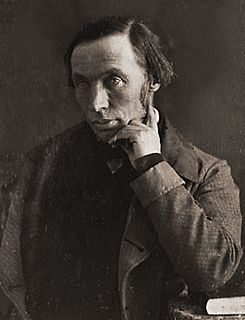A Quote by Rudolf Bultmann
Contemporary Christian proclamation is faced with the question whether, when it demands faith from men and women, it expects them to acknowledge this mythical world picture from the past. If this is impossible, it has to face the question whether the New Testament proclamation has a truth that is independent of the mythical world picture, in which case it would be the task of theology to demythologize the Christian proclamation.
Related Quotes
It is impossible to repristinate a past world picture by sheer resolve, especially a mythical world picture, now that all of our thinking is irrevocably formed by science. A blind acceptance of New Testament mythology would be simply arbitrariness; to make such acceptance a demand of faith would be to reduce faith to a work.
For every Christian, the proclamation and witnessing of the Gospel are never an isolated act. This is important. For every Christian the proclamation and witnessing of the Gospel are never an isolated or group act, and no evangelizers acts, as Paul VI reminded very well, "on the strength of a personal inspiration, but in union with the mission of the Church and in her name"
In restating this basic Christian doctrine, Benedict argues that it is not only for Christians alone. Others may not share the Christian faith in God, but the Christian proclamation that hope comes from within the person- in the realm of faith and conscience - is for them too. It offers an important protection against stifling and occasionally brutal social systems built on false hopes that come from outside the person, founded on political idealogies, economic models and social theories.
While our heart for social justice grows out from the gospel, social justice by itself will not communicate the gospel. We need gospel proclamation, for as much as people may see our good deeds, they cannot hear the good news unless we tell them. Social justice, though valuable as an expression of Christian love, should, especially as a churchwide endeavor, serve the goal of gospel proclamation.
The proclamation of the Gospel remains the primary service that the Church owes to humanity, to offer the salvation of Christ to the man of our time, who is in many ways humiliated and oppressed, and to orientate in a Christian way cultural, social, and ethical transformations that are unfolding in the world.





























